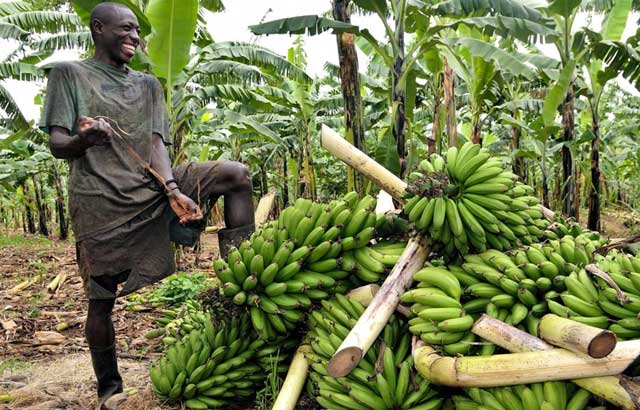
COMMENT | Gertrude Kamya Othieno | Uganda’s allure, both spiritually and culturally, has been growing ever since the days of the East African Revival, and this magnetic force is not just felt within East Africa but extends well beyond its borders. Uganda’s distinctive cultural and spiritual heritage, embodied in its agricultural practices and spiritual movements, presents a model of global influence, connecting its traditions and values to the wider world. A perfect illustration of this cultural magnetism is matooke the beloved banana that is both a culinary staple and a cultural symbol in Uganda.
Matooke, a variety of bananas grown predominantly in Uganda, is far more than just a foodstuff; it embodies the essence of Buganda culture. From its cultivation to its preparation and eventual serving, each step of handling matooke is ingrained in the sophisticated traditions of the Buganda people. The care in growing the bananas, the rituals involved in harvesting them, and the methods of cooking, whether steamed or boiled in banana leaves—are rich with cultural meaning. It is not simply a food to be eaten but an experience that encapsulates the values of hospitality, communal bonds, and respect for the land.
In much the same way that matooke has transcended local borders to become a part of Uganda’s global identity, the East African Revival, starting in Uganda in the 1930s, has left a lasting mark not only on the people of East Africa but on global Christianity. The Revival, with its call for spiritual renewal, personal responsibility, and reconciliation, has become a model of transformation that continues to inspire communities worldwide. Richard Gehman, in his reflection on the Revival, aptly stated, “Uganda proved to be a field ripe into harvest,” recognising the unique role Uganda played in nurturing a spiritual movement that would ripple outwards to the farthest corners of the globe.
Much like matooke, which is now found in international supermarkets labelled as a Ugandan product, the spiritual influence of the Revival has found its place in churches across continents. In Revival communities, even outside Uganda, the hymn Tukutendereza Yesu is sung, often translated into local languages, serving as a bridge between Uganda’s rich cultural heritage and the global Christian community. The song, a hallmark of the Revival, symbolizes the spiritual nourishment and unity that the Revival sought to instil—a unity that crosses geographical, cultural, and linguistic barriers.
Uganda’s growing global magnetism is not confined to its spiritual influence but extends into its agricultural practices, particularly with matooke. The export of matooke, like the spiritual message of the Revival, serves as a cultural ambassador for Uganda, inviting the world to engage with its heritage. This banana, which is intricately tied to the nation’s cultural practices, is now a symbol of Uganda’s agricultural innovation and its capacity to bring sustainable practices to global markets. The potential of matooke, coupled with Uganda’s Revival-inspired values, positions the nation as a leader in both spiritual and socio-economic development.
The East African Revival, with its core principles of unity, reconciliation, and renewal, provides a model for Uganda’s development—not just in spiritual terms but also in its approach to community-building and sustainability. These Revival principles can serve as a framework for development that combines ethical leadership, social responsibility, and economic empowerment. As Uganda looks towards the future, it must leverage both its cultural assets, such as matooke, and its spiritual legacy to create a holistic development model that can inspire nations around the world.
In envisioning Uganda’s future, we see a country whose cultural and spiritual magnetism serves as a beacon for the world. Uganda’s global influence, grounded in its agricultural innovations and Revival-inspired spiritual values, has the potential to guide other nations in creating a development model that marries tradition with modernity, spirituality with economic progress, and local resources with global outreach. Uganda’s story is a testimony to the strength of its people, their resilience, and their ability to export both culture and faith in ways that inspire and unite communities across the globe.
*****
 Gertrude Kamya Othieno | Political Sociologist in Social Development (Alumna – London School of Economics/Political Science) | Email – gkothieno@gmail.com
Gertrude Kamya Othieno | Political Sociologist in Social Development (Alumna – London School of Economics/Political Science) | Email – gkothieno@gmail.com
 The Independent Uganda: You get the Truth we Pay the Price
The Independent Uganda: You get the Truth we Pay the Price



